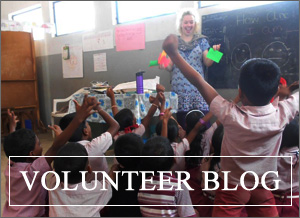Going overseas can be quite daunting especially if it is your first time overseas without friends or family. There are lots of different ways to stay in contact with your nearest and dearest so here are a couple of suggestions!
Phone
Mobile phone is obviously the easiest way to communicate whilst abroad, however not with your UK SIM card! Different networks will charge you different amounts but they will all be expensive and you will more than likely have to pay to receive calls and texts. The best thing to do is either leave your UK SIM card at home or only turn it on periodically when overseas to check the messages (your parents may request a text on arrival – my mum would have liked an update every hour! Needless to say she didn’t get that). Another option if you are on a contract is to suspend it. Some networks do this at no charge, so after a week overseas you could have your contract put on hold until you return and you can arrange it all in advance. This is what I did and then as soon as you return to the UK you can just contact your network provider and ask them to reconnect you with the same number.
So what should you do?
There are a lot of companies that sell international calling cards, but in reality it is best to just buy a local SIM card when you are overseas as it will work out a lot cheaper, even for calling home. They are normally very easy to get hold of (NB: in India you need two passport photos) and it means you won’t go home to a horrendous phone bill.
Make sure that you take an unlocked phone out with you (you may have an old one lying around in the back of your cupboard that is either unlocked or is really cheap to unlock), or alternatively you can normally buy a cheap (but not good quality) phone when you are overseas. Having a local SIM card also means it is very cheap to remain in contact with other volunteers and coordinators whilst overseas.
Remember the time difference, I once called home at some ridiculously early hour of the morning because I got confused when the clocks had changed in the UK and not in India – my family weren’t best pleased!!
Internet
We can’t guarantee that you will have daily access to the internet, some schools may have computers but a lot won’t. There may be computer centres in the village you are working in or there may not be one for a while if you are in a more rural area. Having said that, you have the opportunity to travel at the weekends and therefore will be able to travel to places that have internet access. You obviously don’t want to spend your entire weekend or hours and hours on the internet catching up with people, so it may be a good idea to create a blog which means you can write a post and share it on social networking sites without having to repeat yourself to lots of different people. There are lots of different sites where you can create a blog and you don’t have to be particularly technically savvy to get the hang of them; wordpress, blogger, tumblr . You could also create it before you go and tell your friends and family how you are preparing for your adventures overseas.
A lot of volunteers ask whether they should take out their own laptops, it is something I considered but I decided not to take and I am glad I made that decision. As you won’t have internet access on your laptop the only things you can use it for is to watch films, write your thoughts and upload photos. You can upload photos at a computer centre onto a USB or disc and you can write a journal if you want to record your trip abroad (highly recommended!). If you are worried you are going to get bored and that is why you are considering taking a laptop I wouldn’t worry. I spent all my evenings with my host family; playing games and singing songs (badly), in my other spare time I would plan my lessons, make teaching resources, read a book or do a bit of yoga. The more you throw yourself into the project and local life, the more fun you are likely to have.
iPads, tablets & Kindles
A couple of past volunteers have used iPads (with 3G) to stay in contact with people at home, however remember that these will be extremely exciting and intriguing to students and your host family. If you are planning on taking it overseas with you, keep it safe at all times and remember that people will want to check it out. The 3G is not guaranteed to have signal so don’t rely on this method as a form of contact.
Kindle and other tablets can also have 3G facilities, but again the same applies as above. The Kindle though is useful as you don’t have to bring out lots of books with you (personally I found that the 3G isn’t very good for keeping in contact – it is just about okay to check e-mails, but unless you have the patience of a saint then you wouldn’t want to type an e-mail!).
Good old fashioned snail mail
There is always the post – in fact I love receiving postcards from around the world! Remember though that it often takes a long time to receive post from certain countries. Some postcards I sent from India took over a month to reach their destinations – while others just didn’t make it. However don’t let that put you off – I am sure your friends would love a postcard or too from overseas. The post from the UK abroad is generally quicker, my family sent out a couple of small parcels and they generally took a week to reach me.
Finally…
You are overseas to have an amazing time and your friends and family can hear all about it when you return, so don’t make promises to contact people all the time! They will understand that you are overseas having an amazing time. As long as they know you are safe and well they will be happy to hear all your stories when you are back in the UK!!





Comments are closed.